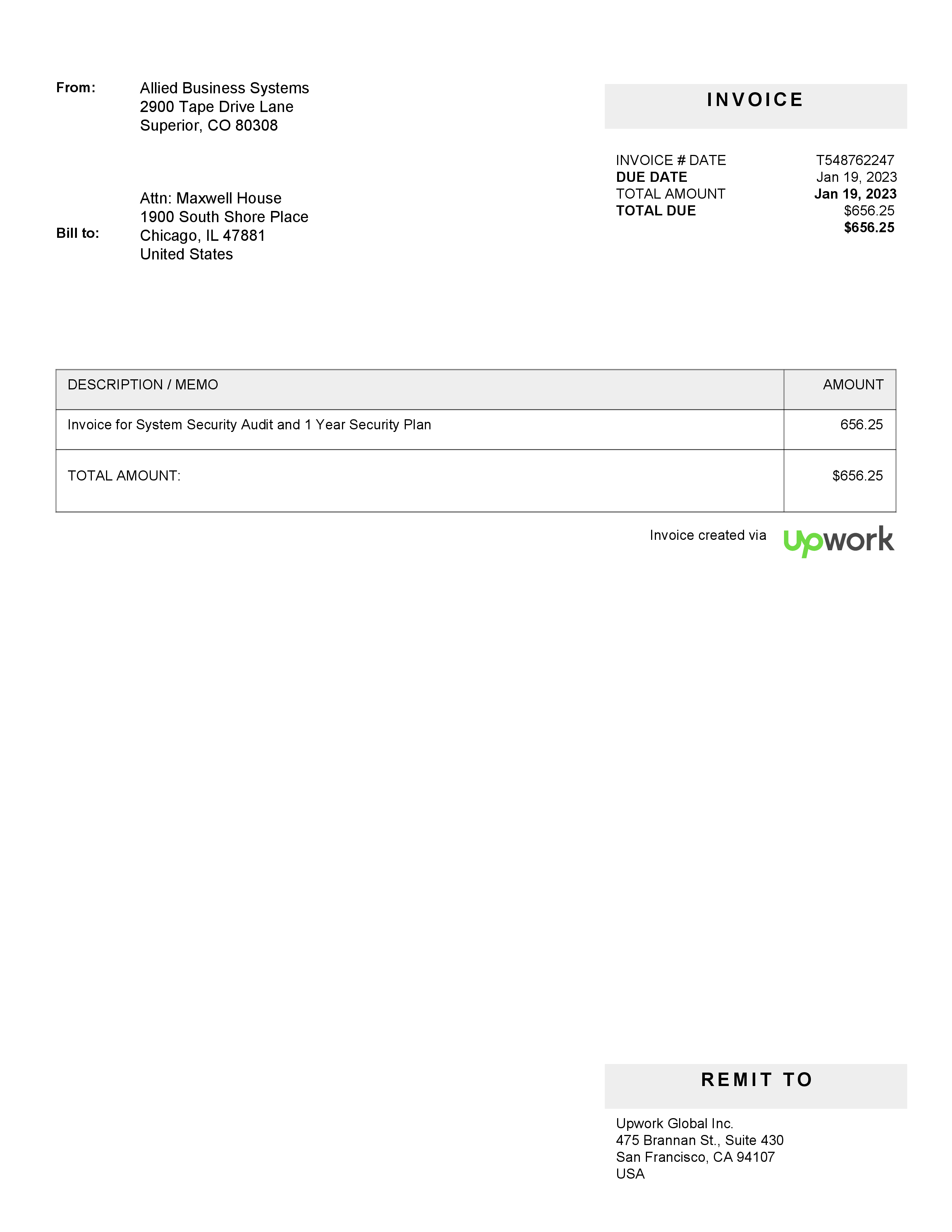Upwork Invoice Template
Edit Now
Upwork is a freelancing platform that connects businesses and individuals with freelance professionals for various services, such as writing, graphic design, programming, and virtual assistance.
The charges that Upwork can implement to their users may include:
- Service fees: Upwork charges a service fee based on the total amount of the freelancer's earnings from the project, which varies depending on the level of service the user chooses.
- Payment processing fees: Upwork charges a payment processing fee for processing payments through their platform, which is typically a percentage of the transaction amount.
- Optional upgrades: Upwork offers optional upgrades, such as promoting a job post or purchasing additional features, which may come at an additional cost.
The process for the sale from Upwork typically involves the following steps:
- Posting a job: Users can post a job on the Upwork platform, including the project details, budget, and required skills.
- Freelancer selection: Freelancers can submit proposals for the job, and the user can review their profiles, proposals, and ratings before selecting the freelancer.
- Project management: The user and freelancer communicate and collaborate through the Upwork platform to complete the project, including milestones and deliverables.
- Payment and review: Once the project is completed, the user approves the payment to the freelancer through the Upwork platform, and can leave a review and rating for the freelancer.
Upwork may also provide additional services, such as payroll management, compliance assistance, and legal support, which may involve additional charges and processes. It's important for users to review the terms and conditions of using Upwork, including the charges and payment policies, before posting a job or hiring a freelancer.
